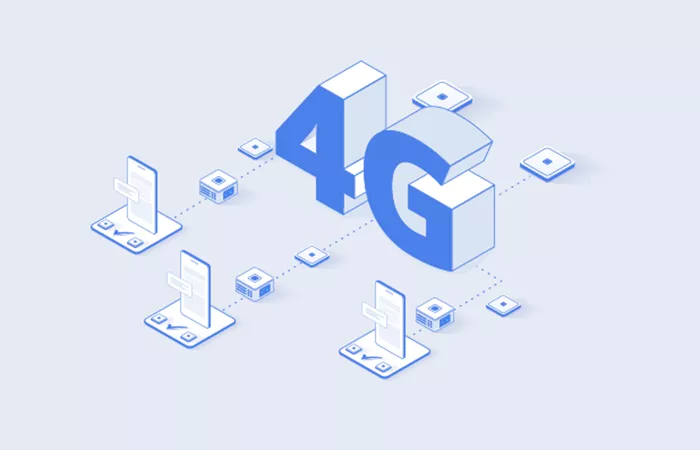In the world of online security, anonymity, and web automation, proxies play a crucial role. A 4G proxy is one of the most advanced types of proxy services available today. It is widely used for various online activities, including web scraping, social media management, and bypassing geo-restrictions. But what exactly is a 4G proxy, and why is it considered superior to other types of proxies? This article provides an in-depth explanation of 4G proxies, their benefits, use cases, and how they work.
Understanding Proxies
What is a Proxy?
A proxy server acts as an intermediary between a user’s device and the internet. When a user connects to the internet through a proxy, their real IP address is hidden, and the proxy server’s IP is used instead. This helps in maintaining privacy, avoiding blocks, and accessing restricted content.
Different Types of Proxies
There are various types of proxies, including:
Datacenter proxies – These proxies are hosted in data centers and offer fast connections but are easily detectable.
Residential proxies – These use real IP addresses assigned by ISPs, making them more difficult to detect.
Mobile proxies – These use IP addresses assigned by mobile carriers, offering high anonymity.
A 4G proxy is a type of mobile proxy that operates on a 4G LTE network.
What is a 4G Proxy?
Definition of a 4G Proxy
A 4G proxy is a type of proxy that routes internet traffic through a mobile network using a 4G LTE connection. It assigns users an IP address from a pool of mobile carrier-assigned addresses. These IPs are considered highly legitimate because they are used by real mobile users.
How 4G Proxies Work
When a user connects to the internet through a 4G proxy, their traffic is routed through a mobile network provider. The provider assigns a dynamic IP address from a pool shared by thousands of mobile users. This makes the traffic appear as if it is coming from a real mobile device, reducing the risk of detection or blocking.
Benefits of Using 4G Proxies
High Anonymity
4G proxies provide superior anonymity because they use IP addresses assigned by mobile carriers. These IPs are shared among many users, making it difficult to trace activities back to a single individual.
Reduced Risk of Blocks and Bans
Websites and online services are less likely to block 4G IPs because they belong to legitimate mobile carriers. Unlike datacenter proxies, which are often flagged, 4G proxies appear as real users.
Dynamic IP Rotation
Most 4G proxies rotate IPs automatically, either at set intervals or after each session. This helps users avoid detection when performing automated tasks such as web scraping or managing multiple accounts.
Bypassing Geo-Restrictions
Since 4G proxies use real mobile network IPs, they can easily bypass geo-restrictions. This is useful for accessing region-locked content or services that restrict access based on location.
Better Performance for Social Media Management
Social media platforms have strict security measures to prevent bot activity and spam. Since 4G proxies provide real mobile IPs, they are more trusted by platforms like Facebook, Instagram, and Twitter, reducing the risk of account suspensions.
Common Use Cases of 4G Proxies
Web Scraping
Businesses and researchers use 4G proxies to extract data from websites without getting blocked. Since these proxies rotate IPs dynamically, they help bypass anti-bot measures.
Social Media Automation
Marketers and influencers use 4G proxies to manage multiple social media accounts safely. These proxies reduce the chances of getting accounts banned by mimicking real user behavior.
Ad Verification
Companies use 4G proxies to check how their ads are displayed in different locations. This helps them verify the accuracy of ad placements and detect fraudulent activities.
E-commerce and Sneaker Bots
Online shoppers and resellers use 4G proxies to secure limited-edition products by bypassing website restrictions and avoiding detection.
Bypassing IP Bans
Gamers and users who have been banned from websites use 4G proxies to regain access. Since mobile IPs change frequently, they can avoid detection and continue using services.
Drawbacks of 4G Proxies
Higher Costs
4G proxies are more expensive than datacenter proxies due to the cost of maintaining mobile network connections and ensuring stable performance.
Slower Speeds
Since 4G proxies rely on mobile networks, they may not be as fast as datacenter proxies. However, they offer a good balance between speed and anonymity.
Limited Control Over IP Addresses
Users cannot always choose a specific IP address because 4G proxies use dynamic IPs assigned by mobile carriers.
How to Choose a Reliable 4G Proxy Provider
Check the IP Quality
Ensure the provider offers real 4G LTE mobile IPs from reputable carriers.
Look for Automatic IP Rotation
A good 4G proxy provider should offer automatic IP rotation to enhance anonymity and avoid detection.
Consider the Pricing
Compare different providers and choose one that offers a good balance between cost and performance.
Customer Support
Reliable customer support is essential for troubleshooting and assistance.
Conclusion
A 4G proxy is a powerful tool for online anonymity, security, and automation. It provides high anonymity, reduces the risk of blocks, and is trusted by most websites. While it may be more expensive than other types of proxies, its benefits make it a valuable choice for businesses, marketers, and individual users. By choosing a reliable provider, users can enjoy the full potential of 4G proxies for various online activities.

